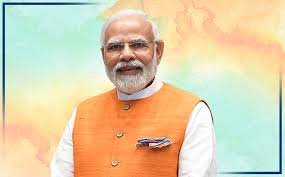New Delhi: In a significant move towards promoting green growth and renewable energy, the central government unveiled a series of measures in the Interim Budget 2024-2025 presented by Finance Minister Nirmala Sitharaman in Parliament on Thursday.
Under the announced initiatives, one crore households across the country will have the opportunity to harness up to 300 units of free electricity every month through rooftop solarization. The Finance Minister highlighted that this ambitious scheme aligns with Prime Minister Narendra Modi’s commitment, made during the historic Pran Pratishta of the Ram Mandir in Ayodhya.
The benefits expected from the rooftop solarization initiative are multi-faceted. It includes potential savings of Rs 15,000-18,000 crore annually for households through free solar electricity, allowing surplus electricity to be sold to distribution companies. Furthermore, the scheme aims to facilitate the charging of electric vehicles, create entrepreneurship opportunities for vendors involved in supply and installation, and generate employment for youth with technical skills in manufacturing, installation, and maintenance.
To address environmental concerns and move towards the goal of ‘net-zero’ by 2070, the Finance Minister proposed viability gap funding for harnessing offshore wind energy potential, with an initial capacity target of one gigawatt. Additionally, plans include the establishment of coal gasification and liquefaction capacity of 100 million tonnes by 2030, contributing to a reduction in imports of natural gas, methanol, and ammonia.
The Budget also outlined a phased mandatory blending of Compressed Bio Gas (CBG) in both Compressed Natural Gas (CNG) for transport and Piped Natural Gas (PNG) for domestic purposes. Financial assistance will be provided for the procurement of biomass aggregation machinery to support collection efforts.
In a bid to bolster the electric vehicle (EV) ecosystem, the Finance Minister announced plans to expand and strengthen manufacturing and charging infrastructure. The encouragement of greater adoption of electric buses for public transport networks through a payment security mechanism was also emphasized.
To further promote green growth, Sitharaman introduced a new scheme for bio-manufacturing and bio-foundry, focusing on environment-friendly alternatives such as biodegradable polymers, bio-plastics, bio-pharmaceuticals, and bio-agri-inputs. The scheme aims to shift the manufacturing paradigm towards regenerative principles.
The interim budget, designed to meet financial needs until a new government is formed after the Lok Sabha polls, equals the record set by former Prime Minister Morarji Desai. Desai, as finance minister, presented five annual budgets and one interim budget between 1959 and 1964.
As the Budget Session unfolds, the Indian economy is projected to grow close to 7 percent in the financial year 2024-25, continuing its status as the fastest-growing major economy. The detailed full budget is expected to be presented by the new government in July after the Lok Sabha elections.



